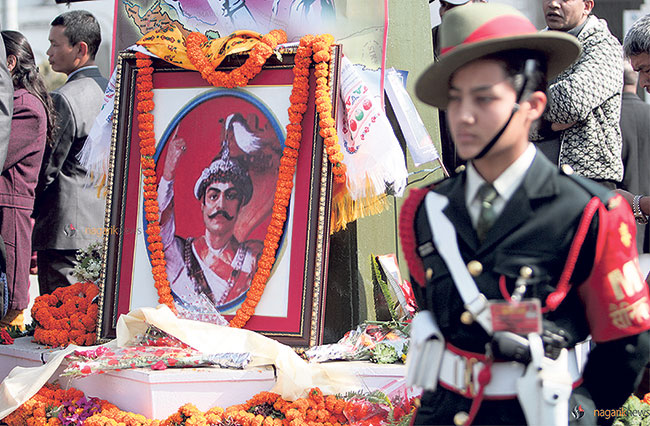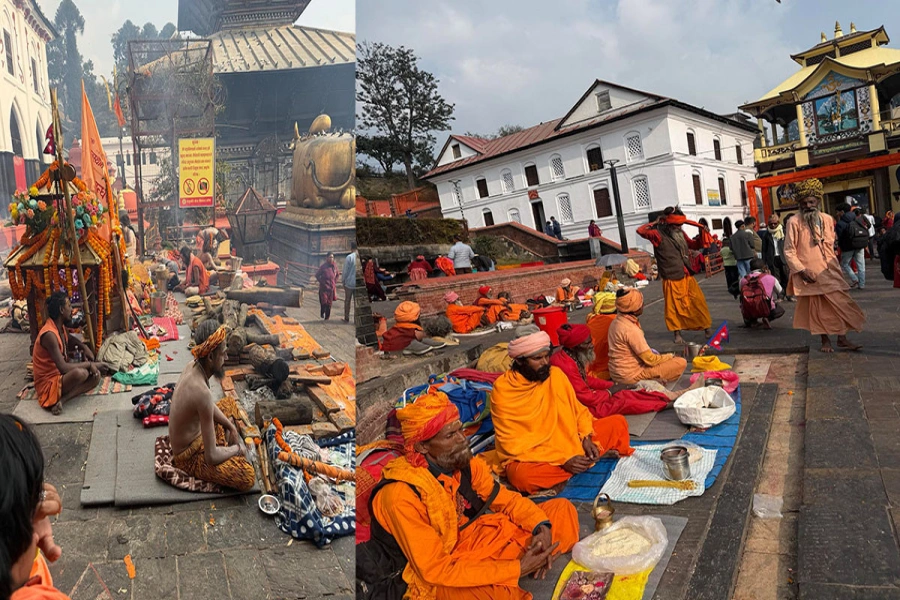Though monarchy is gone, monarchist nationalism works all too well. This is
why we are celebrating Prithvi Narayan Shah’s birthday as ‘National Unity Day’
After a gap of 11 years, the government of Nepal decided to celebrate Poush 27, the birthday of Prithvi Narayan Shah, as ‘National Unity Day’. The decision was welcomed by civil society leaders and members of major political parties, from Nepali Congress and CPN-UML to Maoist Centre—which had led ten year long civil against monarchy.
 This is interesting because there was a time in Nepali politics when supporting any element associated with monarchy was considered as a political blunder. They thought People’s Movement of 2007 made monarchy and all its memory obsolete. They understood that Nepali public did not want any of it, in any form, and hence there was no point in backing elements associated with monarchy.
This is interesting because there was a time in Nepali politics when supporting any element associated with monarchy was considered as a political blunder. They thought People’s Movement of 2007 made monarchy and all its memory obsolete. They understood that Nepali public did not want any of it, in any form, and hence there was no point in backing elements associated with monarchy.
So, what changed? Why are the politicians comfortable in commemorating Prithvi Narayan Shah’s birthday with a national holiday, and that too as a ‘National Unity Day? Why is there no backlash? Answers to all this lies in one man: Khadga Prasad Oli, ‘Prime Minister in waiting’ whose populist politics has changed the whole political discourse in the last two and half years.
Tackling populism

Oli’s nationalism
These days when Oli speaks, he speaks for the nation for he represents Nepali people. At least this is what is believed. He does not finish any of his speeches without mentioning his fight for ‘national sovereignty, unity, and integrity’. While broadcasting Oli’s interviews, mainstream media would play eulogizing background music, showing him in a visionary light.
Now he is the one who criticizes Dr Govinda KC or who advocates for money laundering and get away with it. He has achieved a cult status like previous monarchs Mahendra and Prithvi Narayan. He has done so by building his image on the foundation of version of nationalism earlier practised by these monarchs.
This version of nationalism is essentially based on exploiting prejudices of the group in majority. In Nepal, this means ‘acting tough’ with India, being inflexible towards the demands of Madhesis or lumping their demands as influenced by India, all the while pedalling the rhetoric of instability and threat to national sovereignty and unity.
We saw Oli doing this throughout campaigns for local, provincial, and federal elections. He stood firmly against constitution amendment (now that elections are over, he seems flexible on this). He questioned the patriotism of Madhesi leaders, and cried foul against foreign interference at every chance he got. This served him well. His coalition swept the elections.
Oli’s success has irretrievably changed Nepali politics. Now leaders from all major political parties have realized that though the monarchy is gone, monarchist nationalism works all too well. This is why after 11 years we are celebrating Prithvi Narayan Shah’s birthday as the ‘National Unity Day’, and no politician bats an eye.
Populist shortcut
I am not against marking Prithvi Narayan Shah’s birthday. Nor I am against giving a national holiday to mark it. What I am against is marking the day as a ‘National Unity Day’ because ‘unity’ implies more than a geographical unity. It implies happiness and togetherness, something that Hindu monarchist polity of Prithvi did not have. This is acknowledged by the present constitution which directly and indirectly describes Nepali society under monarchy as “feudalistic, autocratic, discriminatory, and oppressive”. So why did not any of the politicians protest against this decision? Because they were afraid and they are afraid that they won’t be liked if they do.
Recent decision of prime minister Sher Bahadur Deuba to give old age allowance for people aged 65 and above, Kamal Thapa’s decision to go hard on Hindu nationalism for his and his dying party’s political revitalization or Prachanda’s U turn from ‘identity’ politics to politics of ‘prosperity, stability and economic development’ shows that we have entered a new era in Nepali politics where politicians take a populist shortcut.
Here the attempt is not in designing sound policies and programs to help the country, but in stirring public emotions. Given that Nepali economy cannot afford decreasing the age for elderly allowance, Deuba’s decision is an attempt for popularity.
We will see more of this kind of politics in the future. We will also see more popularity stunts like the recent shoe policing campaign by leaders of Nepali Congress. This sort of campaign will be constantly used as a tool to turn public opinion in one’s favour. The Nepali politics, in the days to come, if not productive will surely be entertaining. And we all will have to thank Comrade Oli for that.
sushavniraula@gmail.com




































